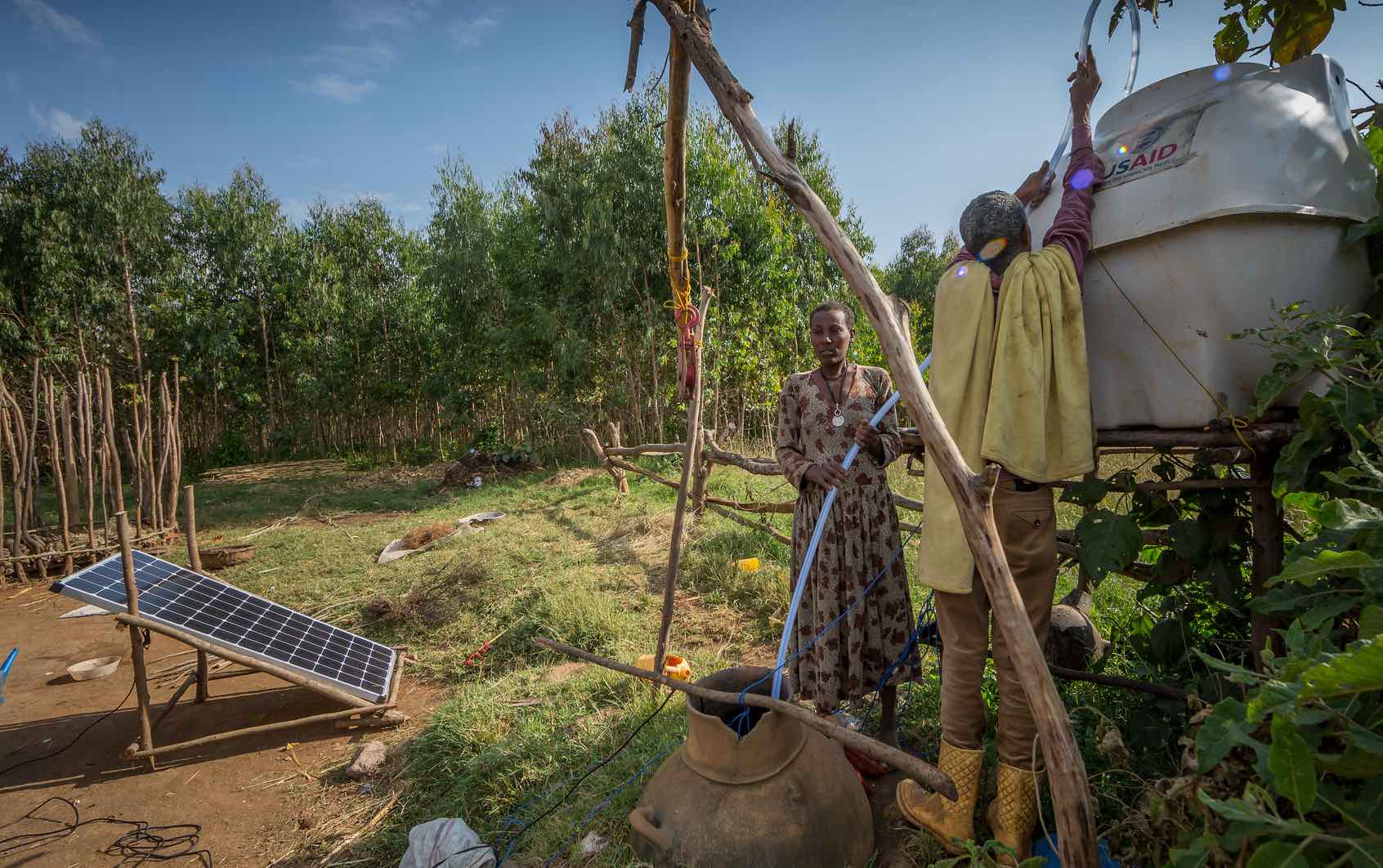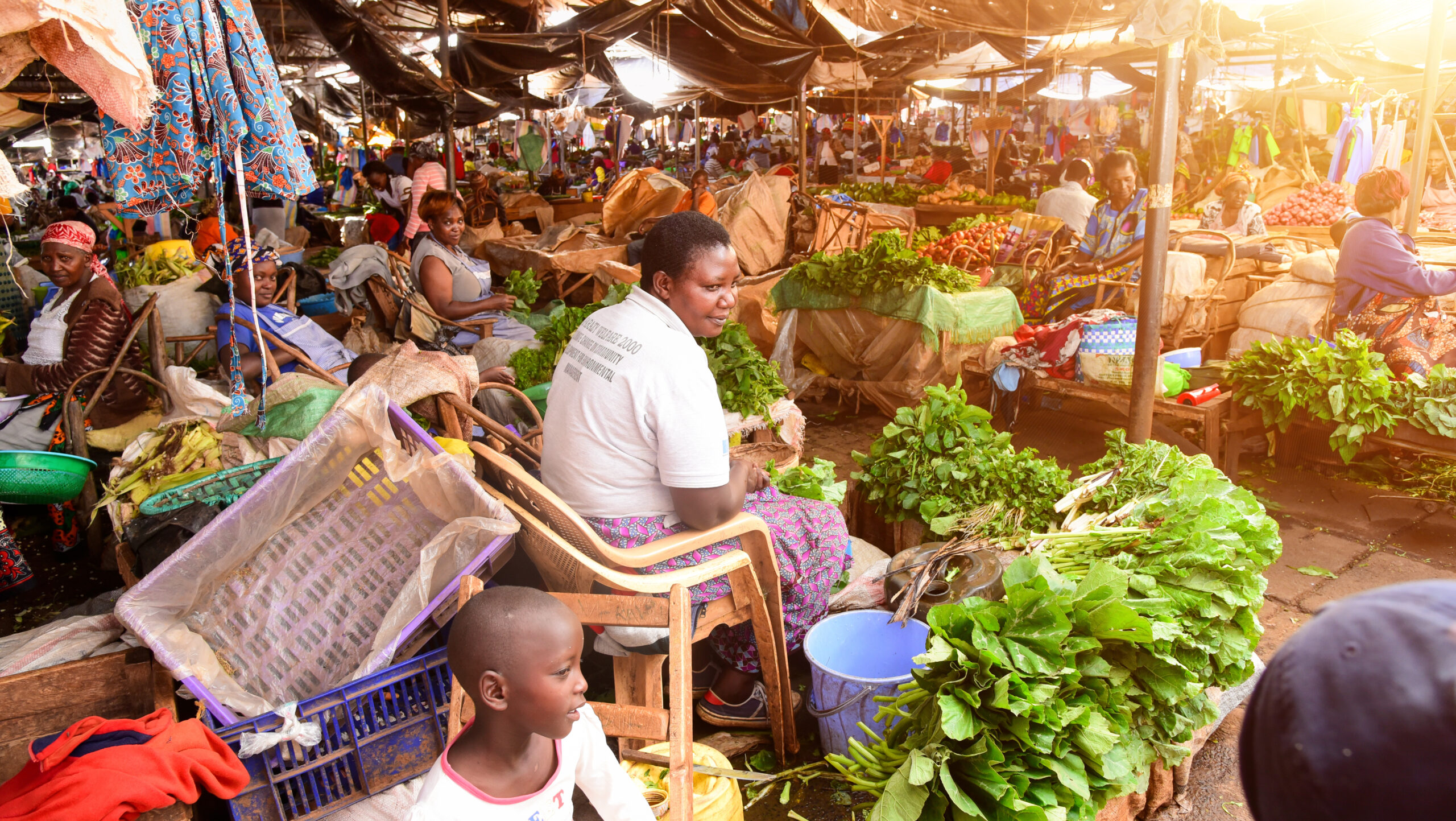Poor nutrition threatens health, exacerbates inequalities, affects economic productivity, and traps countries like Ethiopia in a vicious cycle of poverty. About 38% of children below the age of 5 in the country are too short for their age (stunted). This means that these children live in an environment that impairs their physical and cognitive growth potential. The impairment often begins at conception, as mothers’ diets can also be poor, affecting not only their health but also the growth of the fetus in the womb.
To address the pressing problem of malnutrition, the Ethiopian government has developed numerous policies and programs. Most of these programs aim to increase agricultural production and productivity to ensure year-round access to food. They are often complemented by nutrition education programs aimed at influencing the dietary habits of the population. In practice, however, these goals are not always congruent, as evidenced by repeated complaints from recipients of nutrition education who say, “We now know what a healthy diet is, but where are the foods that allow us to practice what we learn”.
A healthy diet is broadly defined as a diet that provides adequate energy and is safe and diverse. The diet should not only consist of staple foods but should also include health-promoting fruits and vegetables. However, studies from Ethiopia consistently show that most diets consist mainly of cereals and are affected by seasonality, with more limited food availability in the dry season. Despite a significant increase in agricultural production over the past decade, production remains largely rain-fed, seasonal, and cereal grain-dependent.
Irrigation can enable the production of high-value, nutritious foods such as fruits and vegetables that require higher amounts and more frequent water. Fodder irrigation is also emerging in the country and could help mediate recurrent livestock death linked to droughts. Although well-designed small-scale irrigation programs have the potential to increase income and productivity and bridge seasonal production gaps, they are not yet sufficiently developed.
The potential benefits of well-designed irrigation systems are recognized in both regional and national policies. The African Union’s Common Position on Food Systems and Ethiopia’s Food System Commitment and Position Statement Vision 2030: Transforming Ethiopia’s Food System recognize irrigation as a solution that will transform the future, a “game changer.” The launch of a new Ministry on Irrigation and Lowlands in 2021 has further increased the role of the sector in Ethiopia’s national development strategy.
What can be learned from current small-scale irrigation programs in Ethiopia?
A series of studies evaluating small-scale irrigation programs in Ethiopia’s Amhara region have shown that small-scale irrigation helps fill seasonal food gaps, improves household food security, and prevents acute forms of child malnutrition. Irrigation has also improved the resilience of farming households to major weather shocks in Ethiopia.
Small-scale irrigation has also helped increase the production of vegetables and fruits; it has increased vegetable consumption among women but not children. This suggests that increased production does not always lead to increased consumption and underscores the need to identify factors that may hinder children’s vegetable consumption.
By taking advantage of the current policy environment aimed at transforming food systems through a nutrition-focused approach, the nutritional impact of small-scale irrigation can be significantly increased.
Looking to the future: Putting missing foods on the table
Increased income from irrigation can make more expensive but nutritious foods like eggs, meat, and dairy more affordable. However, access to markets is critical to selling irrigated produce, but also to buying nutritious food at the market. Improved post-harvest management could increase the production of perishable foods such as animal feed, fruits, and vegetables.
Who has control over income influences spending decisions and women’s empowerment appears to benefit children. Women need to be empowered through education and income-generating activities in ways that reduce their time burden to ensure the important roles of child feeding and care.
Irrigation investments can be promoted to improve nutrition, in addition to their potential to increase income or close the food gap. However, this requires striking a balance between the production of animal feed, staple foods (cereals), and non-staple foods (e.g., fruits) through irrigation.
Finally, irrigation projects should be designed to meet multiple objectives, including economic goals, equity goals, such as women’s empowerment, and food security and nutrition goals. A well-designed irrigation intervention has the potential to put food missing from the diet (back) on the table; enabling farmers to practice the excellent nutritional advice they receive from the health extension workers.
Kaleab Baye is an Associate Professor with the Center for Food Science and Nutrition, Addis Ababa University, and a Feed the Future Innovation Lab For Small Scale Irrigation (ILSSI) collaborator on irrigation-nutrition linkages; Claudia Ringler is Director of IFPRI’s Natural Resources and Resilience Unit, an ILSSI collaborator and co-lead of the CGIAR NEXUS Gains Initiative. This post first appeared on the ILSSI website.







